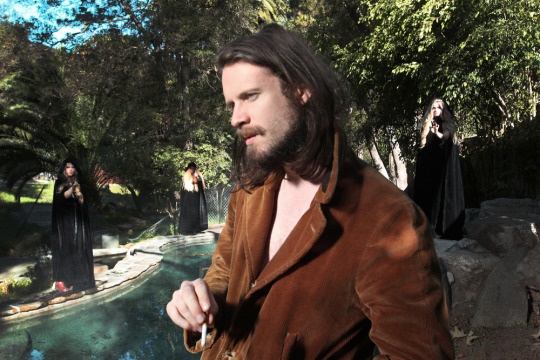#john lukacs
Explore tagged Tumblr posts
Text
"As primeiras [as motivações] são empurrões do passado, os segundos [os objetivos] puxões do futuro." - John Lukacs
2 notes
·
View notes
Text
youtube
TODAY IN PHILOSOPHY OF HISTORY
John Lukacs and non-Copernican History
Wednesday 31 January 2024 is the centenary of the birth of historian John Lukacs (31 January 1924 – 06 May 2019), who was born in Budapest, Hungary, on this day one hundred years ago.
Lukacs was a prolific writer who not only wrote many books of history, but also many books on historical thought, which give something of an anti-realist and non-Copernican view of history in which history does not fall short of the mark of science, but is something more than science.
Quora: https://philosophyofhistory.quora.com/
Discord: https://discord.gg/r3dudQvGxD
Links: https://jnnielsen.carrd.co/
Newsletter: http://eepurl.com/dMh0_-/
Podcast: https://podcasters.spotify.com/pod/show/nick-nielsen94/episodes/John-Lukacs-and-non-Copernican-History-e2f61ha
0 notes
Text
At times in the writing of wine history, wine itself has been treated as a historical actor. This is the case in many of the sweeping histories of wine, such as Hugh Johnson’s original Vintage: The Story of Wine, Paul Lukacs’s recent Inventing Wine, John Varriano’s Wine: A Cultural History, or Marc Millon’s Wine: A Global History. These lucid and entertaining histories, written by great narrators with serious wine expertise, follow a similar narrative arc. Wine is the central protagonist, the potable Zelig, popping up in different historical moments in different parts of the world. The story begins in the Fertile Crescent, where Wine is born, or in the ancient Mediterranean, where Wine enters a boisterous adolescence in the symposia and bacchanalia of the ancient Greeks. The reader is invited to pause and appreciate the wine-themed mosaic and shards of amphorae. The story then skips a few centuries and a few hundred miles, to medieval Europe (we are left to wonder what Wine has done in between), where Wine joins forces with powerful and institutionalized Christianity and canny monks create a patchwork of orderly clos on the Côte d’Or: bless them! Wine remains in France, or perhaps summers in Germany, and Bordeaux emerges in the seventeenth century, eventually finding its way to Britain (we are treated to a Samuel Johnson quote, or Pepys). Port and sherry have their seafaring adventures. The nineteenth century opens with Champagne surviving war, producing widows and conquering Russian markets; France produces Pasteur, who produces better wine, a triumph of science and the Enlightenment; wine is enjoying its golden years. Then, three-quarters of the way through this drama, tragedy strikes, in the form of the vine disease phylloxera. Wine is dealt a staggering blow and its very survival is threatened. Fortunately, a new world of scientists, mavericks, and neoliberal entrepreneurs emerge: capital is found, the plucky New World steps in to help, and new vines are grafted. Wine is saved! This cannot be criticized as being a Eurocentric narrative, because the tale concludes in California, or Uruguay, or China. Undeniably, at the conclusion of this story there is incredible momentum and optimism. Global wine production is the highest it has ever been, consumption of wine is high, and wine is (relatively) cheap. Were he a wine historian, Francis Fukuyama would declare it the end of wine history.
This hagiography of Wine is a great read: a mouth-watering tale of high drama, blind monks, and supple tannins. And it is not necessarily inaccurate. But it is, on the other hand, what British historians have called a Whiggish narrative: one that presumes continual progress, culminating in the current era, which is assumed to be the best ever. This Whiggishness may overlook some of the current difficulties in the market, or shrug off past problems in the wine industry, since all ended well. Geographically and chronologically it is uneven, such that the producers studied here generally do not merit inclusion until they have become major global actors. This type of narrative structure is what gives the false impression that South Africa produced a great wine called Constantia in the eighteenth century, and then produced nothing again until 1994. The place of Wine as the embattled protagonist who overcomes many hardships (vine diseases, consumer apathy, high taxation) and emerges triumphant and affordable in the late twentieth century, is also what is known in Marxist terms as “commodity fetishism.” As Bruce Robbins has argued, in the new commodity histories, “each commodity takes its turn as the star of capitalism.” The commodity itself, rather than the social and economic relationships that led to its production, becomes the driving force of the narrative.
Jennifer Regan-Lefebvre, Imperial Wine: How the Empire Made Wine's New World
44 notes
·
View notes
Text
2025 Book Count
January 1) Finished Five Days in London, May 1940 by John Lukacs. Do not recommend.
January 14) Finished Sphere by Michael Crichton. Probably would not recommend.
2 notes
·
View notes
Text
Is this Techism, or a Tech Bro Bubble?
Techism, Technocracy, or Techarchy?
“The isms have all become wasms.” - Historian John Lukacs
0 notes
Text
What I read in 2022
A little late. 2023 to follow soon.
* * *
Ying Shih Yü, Chinese History and Culture, Volume 1
Yuen Yuen Ang, China’s Gilded Age
Lucia Berlin, A Manual for Cleaning Women
Stephan Körner, Kant
Alexander Herzen, My Past and Thoughts, Vol 5
Leonard Susskind & George Hrabovsky, Classical Mechanics: The Theoretical Minimum
Frank Dikotter, Mao’s Great Famine
Alexander Herzen, My Past and Thoughts, Vol 6
George Orwell, 動物農莊(港豬版)
Tom Hopkins, Sales Prospecting for Dummies
Ray Bradbury, Fahrenheit 451
Paul Gilroy, There Ain’t No Black in the Union Jack
Kenn Amdahl, There Are No Electrons
Gianfranco Poggi, The Development of the Modern State
Ehrhard Bahr & Ruth Goldschmidt Kunzer, Georg Lukacs
Gianfranco Poggi, Forms of Power
Thomas Gordon, Parental Effectiveness Training
Robert Heinlein, Starship Troopers
James Fok, Financial Cold War
Angela Carter, The New Eve
Elizabeth Strout, My Name is Lucy Barton
Ying Shih Yü, Chinese History and Culture, Volume 2
Bill Hayton, The Invention of China
Murasaki Shikibu, The Tale of Genji
Hannah Arendt, The Life of the Mind
林匡正, 香港足球史
Karl Ulrich & Lele Sang, Winning in China
Harry Morgan, Sunny Places for Shady People
Elizabeth Strout, Amy and Isabelle
Naomi Standen (ed), Demystifying China
Angela Carter, Wise Children
Elizabeth Strout, The Burgess Boys
John Gribbin, Get a Grip on Physics
Chris Waring, An Equation for Every Occasion
Hannah Arendt, The Human Condition
Mary McCarthy, Birds of America
Mary McCarthy, The Company She Keeps
Lisa Taddeo, Three Women
Hon Lai-chiu, The Kite Family
Jim Breithaupt, Physics
John Gribbin, Seven Pillars of Science
John Gribbin, Six Impossible Things
Barry Lopez, Horizon
Elizabeth Strout, Olive Kittridge
Elizabeth Strout, Anything is Possible
Elizabeth Strout, Oh William!
Mike Goldsmith, Waves
Monica Ali, Untold Story
Catherine Merridale, Ivan’s War
Jessica Andrews, Saltwater
Val Plumwood, Feminism and the Mastery of Nature
AM Homes, May We Be Forgiven
Gaia Vince, Adventures in the Anthropocene
Ho-fung Hung, City on the Edge
Richard Feynman, QED
Fredric Raichlen, Waves
Angela Carter, The Magic Toyshop
Karen Cheung, The Impossible City
Adam Tooze, The Deluge
Celeste Ng, Everything I Never Told You
Sean Carroll, The Biggest Ideas in the Universe
Louisa Lim, The Indelible City
Gavin Pretor-Pinney, The Wave Watcher’s Companion
Adam Tooze, The Wages of Destruction
Adam Tooze, Shutdown
Annie Ernaux, A Frozen Woman
Ursula Le Guin, The Lathe of Heaven
Virgina Woolf, The Waves
Ursula Le Guin, Tehanu
Ursula Le Guin, The Telling
Gaia Vince, Nomad Century
Janna Levin, How the Universe Got Its Spots
Lara Alcock, Mathematics Rebooted
Donella Meadows, Thinking in Systems
Emily St John Mandel, The Glass Hotel
Anon, 伊索傳 & 驢仔
Elizabeth Kolbert, Under a White Sky
Emily St John Mandel, Station Eleven
Gary Gerstle, The Rise and Fall of the Neoliberal Order
Bruno Mansoulié, All Of Physics (Almost) In 15 Equations
1 note
·
View note
Text
John Bellamy Foster – Antroposen’de Kapitalizm (2023)
İçinde yaşadığımız kapitalist sistem geleceğimizi tehdit ettiği gibi şimdi bir de dünya ile çatışıyor. Bu kitap, zamanımızın korkunç gerçekliğine dair. Ancak aynı zamanda da tarihin kritik anlarında insanlığın gösterdiği çabanın bilgisine sahip olmanın getirdiği bitip tükenmez bir umuda da dair. 1919 yılında Marksist felsefeci Georg Lukacs dünyanın kaderinin tehlikeye girdiği devrimci durumlarda…

View On WordPress
#2023#Antroposen’de Kapitalizm#Ekolojik Yıkım veya Ekolojik Devrim#John Bellamy Foster#Kalkedon Yayınları#İdem Erman
0 notes
Photo

There are innumerable instances suggesting that modern intellectuals do not believe themselves, that they don't really believe what they say, that they say certain things only in order to assure themselves that they possess opinions and ideas that are different from those that are entertained by the common herd of men.
- John Lukacs
The eminent historian John Lukacs, a World War Two Hungarian Nazi labour camp survivor and escapee from post-war Communist Hungary to America, called himself a “reactionary” because he was a traditionalist and a persuasive advocate of the necessity of historical knowledge to make any sense out of most things, and because he lamented the transformation of science into a false religion and the over-commercialisation of economic progress. he thought post-structuralism of the French and postmodernism as a passing fad for lazy navel gazing bourgeoisie intellectual minds.
For all this he was viewed as curmudgeonly. He was, in fact, unimpressed with much that was modern but not a pessimist; he never resented disagreement, and was always good-natured in debate.
He was an important historian of great integrity and originality, and certainly one of the greatest American historians of modern Europe.
#lukacs#john lukacs#quote#historian#hungary#america#intellectuals#ideas#ideology#academia#university
56 notes
·
View notes
Photo

John Lukacs
31 notes
·
View notes
Text
Generalizations, like brooms, ought not to stand in a corner forever; they ought to sweep as a matter of course.
John Lukacs
1 note
·
View note
Text
The Age of the Book may be ending, but ...
The Age of the Book may be ending, but …
Books on shelves line my walls. They are like a lifeline for me. Along one wall are the books I’ve completely read and kept. I look at the bindings and recall not only the contents of the book but also the places and times in life when I read them. They are markers of my life with learning. On another wall are the books I have not yet completely read. The show me that there is still so much to…

View On WordPress
0 notes
Quote
Mi más a bosszúvágy, mint szenvedést okozni, hogy ezáltal találjunk gyógyírt szenvedésünkre?
John Lukacs: A történelmi Hitler
139 notes
·
View notes
Text






Father John Misty by Maximilla Lukacs for Fear Fun (2012)
#father john misty#fjm#josh tillman#ffe#maximilla lukacs#2011#2012#THE LAST ONE LMFAOOO#his eyes look soo blue#i know these are well known but i rarely see them together
367 notes
·
View notes
Link
“A proud and old-fashioned man with an eminent forehead, cosmopolitan accent, and erudite but personal prose style, Lukacs was a maverick among historians. In a profession where liberals were a clear majority, he was sharply critical of the left and of the cultural revolution of the 1960s.”
0 notes
Photo



Denial (2016) by Mick Jackson
Pictures 1 and 2 Hitler: A Study in Tyranny (1952) by Alan Bullock Valkyrie, The Plot to Kill Hitler (2009) by Philipp Von Boeselager Hitler (1974) by Joachim C. Fest Hitler and Stalin: Parallel Lives (1992) by Alan Bullock
Picture 3: The Hitler of History (1997) by John Lukacs
#denial#mick jackson#rachel weisz#deborah lipstadt#hitler a study in tyranny#alan bullock#valkyrie the plot to kill hitler#philipp von boeselager#joachim c. fest#hitler and stalin parallel lives#the hitler of history#john lukacs#books in movies#richard rampton#tom wilkinson
8 notes
·
View notes
Quote
Everything has a history, including history.
John Lukacs, A Student’s Guide to the Study of History
2 notes
·
View notes